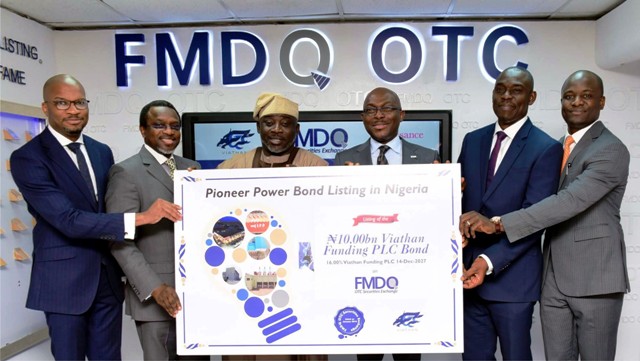Business
DPR Hails Stakeholders’ Investment In Oil, Gas Industry

The Department of Petroleum Resources (DPR) has commended stakeholders in the oil and gas industry for investing in the petroleum downstream sector.
The Warri Zonal Operations Controller, Mr Antai Asuquo, gave the commendation yesterday at the 2018 Annual General Meeting of the Department of Petroleum Resources (DPR), Warri Zonal Office, in Delta.
Asuquo said that their efforts had assisted in the value chain of petroleum storage, dispensing, transportation and distribution as well as jobs creation.
“It is, therefore, our collective responsibility to ensure that this value chain is optimised in a safe and healthy manner in accordance with the statutory laws and regulations, the operational challenges notwithstanding.
“Be assured that as a regulator and government agency, we will be relentless in adding values to your business by positively advising and detailing all the statutory enablers to enhance your efforts.
“The ongoing petrol crisis with its associated hardship made the DPR to embark on unending surveillance and some of the erring depots and retail outlets visited were sanctioned.
“Lessons have been learnt by all the stakeholders and efforts and discussions are ongoing by both the government and operators to permanently nip the situation in the bud,” he said.
Asuquo also appealed to the stakeholders not to buy illegally refined product from the creeks in order not to damage their facilities and jeopardised the life of the masses.
He advised them to carry out periodic maintenance of their facilities and adhere to health and safety rules in their environment.
“Our operation is vulnerable, so we should not take security issues for granted,” he said.
The DPR zonal controller urged the stakeholders to maintain cordial relationship with their host communities in the interest of peace.
Asuquo warned depot owners against selling product to bulk buyers, saying that any marketer without DPR valid operating licence would not be allowed to load products from the depot.
In his remarks, the Rainoil Depot Manager, Mr Reuven Okon, identified loss of control arising from leakages from the terminal valves and erroneous procedures in quality measurement as major challenge in the business.
Okon said that government should make petrol more available to the end users and ensure its sustainability.
Commenting, Mr Raphael Biu, the Terminal Manager, Matrix Energy, urged the Federal Government to address the scarcity of the product to alleviate the sufferings of the masses.
“Basically, if the product is adequately made available, the scarcity will end,” Biu said.
Business
Fidelity Bank To Empower Women With Sustainable Entrepreneurship Skills, HAP2.0
Business
President Tinubu Approves Extension Ban On Raw Shea Nut Export
Business
Crisis Response: EU-project Delivers New Vet. Clinic To Katsina Govt.
-

 News3 days ago
News3 days agoAmend Constitution To Accommodate State Police, Tinubu Tells Senators
-

 Politics3 days ago
Politics3 days agoSenate Urges Tinubu To Sack CAC Boss
-

 News2 days ago
News2 days agoDisu Takes Over As New IGP …Declares Total War On Corruption, Impunity
-
Business3 days ago
President Tinubu Extends Raw Shea Nuts Export Ban To 2027
-
Business3 days ago
Crisis Response: EU-project Delivers New Vet. Clinic To Katsina Govt.
-
Business3 days ago
President Tinubu Approves Extension Ban On Raw Shea Nut Export
-
Sports3 days ago
NDG: Rivers Coach Appeal To NDDC In Talent Discovery
-
Rivers3 days ago
Etche Clan Urges Govt On Chieftaincy Recognition

